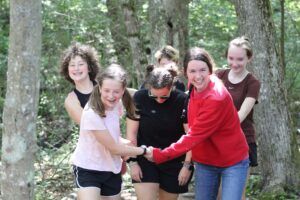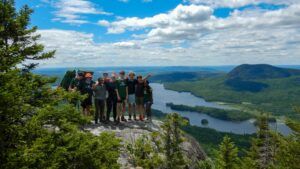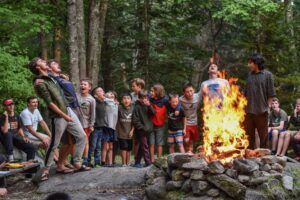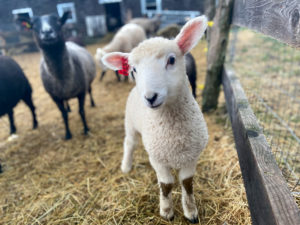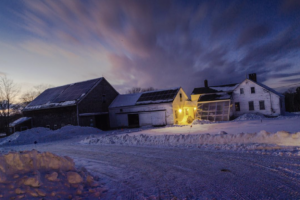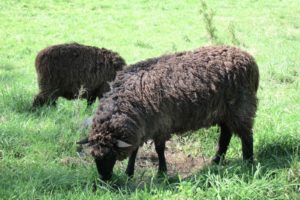When I think about the intersection of community and food, my mind goes to bountiful places: I reflect on the richness of directly growing food for the Chewonki community, and I picture the local farms that we support through our food purchasing in the dining hall. Though more difficult to attach images to, there are startling, harder-to-speak-to issues around food in this local community. Did you know, for example, that more than 15% of people in the state of Maine are food insecure? That means that 206,000 people lack consistent access to enough food for an active, healthy lifestyle or have limited or uncertain access to nutritionally adequate food. More than 4400 of those food insecure individuals live here in Lincoln County.
This past Saturday, Chewonki and The Morris Farm co-convened a day-long event called “Local Food, Local Hunger: A Community Forum on Food Security in Lincoln County.” It was a full and bustling day focused on an oftentimes invisible and hard-to-discuss topic. For Chewonki, co-convening the forum was decidedly mission-driven. Engaging in this dialogue and moving toward action as a student or adult is personally empowering and transformative, and a thriving and sustainable community includes and is based on everyone having a place to sit and eat at the (metaphorical and physical) table.
The day began with a panel discussion featuring individuals working in different sectors of food security in our region, from farmers growing food for local hunger relief to a coordinator for a program providing school-aged children with free meals during the summertime, when school breakfasts and lunches are not a part of their daily routine. Morning workshops focused on particular programs and studies, while afternoon workshops were more discussion-based. Just after a delectable lunch of Chewonki root cellar bisque and wholewheat bread, keynote speaker Mark Winne described the state of food security in our country and in this region and challenged the audience to couple hunger relief efforts with advocacy for longer-term policy changes (in particular, a higher minimum wage in the United States) that will ultimately fight poverty and – in turn – food insecurity in this country.
So much of what I heard and learned on Saturday is still percolating under the umbrella question of “What can and should I do next?” Here are three things that struck me throughout the day:
- The range of food security efforts in this region is impressive. There is sincere intention and care being put into providing for the immediate needs of hungry people in our area and also into working toward social change that will change the root causes of inequalities that exist. From Master Gardeners growing vegetables through the University of Maine Harvest for Hunger to volunteers packing backpacks with nutritionally balanced weekend meals for qualifying Wiscasset children to programs that support the use of SNAP benefits at local farmers markets, there is moving and shaking and feeding happening in this place.
- Chewonki’s Semester School students are astounding human beings. All 42 of our young folks participated in the morning sessions, asking challenging questions and engaging in difficult material with aplomb. I am filled to the brim when working with these fine folks: they make this could-be-abstract topic relevant and personal as they grapple with connections to their home communities and personal choices. I sent an e-mail to a semester alum after the forum; she was the root of our curricular work over the past year in relationship with St. Philip’s Help-Yourself-Shelf in Wiscasset. She wrote back excited to hear about the forum and with a note about the work that she and another alum are doing as board members for a local farm dedicated to growing food for hunger relief in the Concord, Massachusetts. These are 17 years olds serving on non-profit boards: oh, the change agents these students are and will continue to be!

- This is only the start of the conversation. So many questions remain: how can we most effectively talk about food security issues? What can we most effectively do, both as an organization that is part of a broader community and as individuals? What actions and advocacy are needed in the immediate, and what will change the very basis of inequality in food access, availability, and education?
For more information on food security, I would encourage you to spend time with one of two interactive maps: Feeding America’s Map the Meal Gap or the USDA’s Food Environment Atlas.
Also, check out press coverage of the event in the Brunswick Times Record and the Bangor Daily News. More photos from the event can be found on Chewonki’s Flickr site.
So many thanks to all who helped to make the day a rich beginning to an important dialogue about food security in this region. Be on the lookout for future forums at Chewonki or in your home area!




